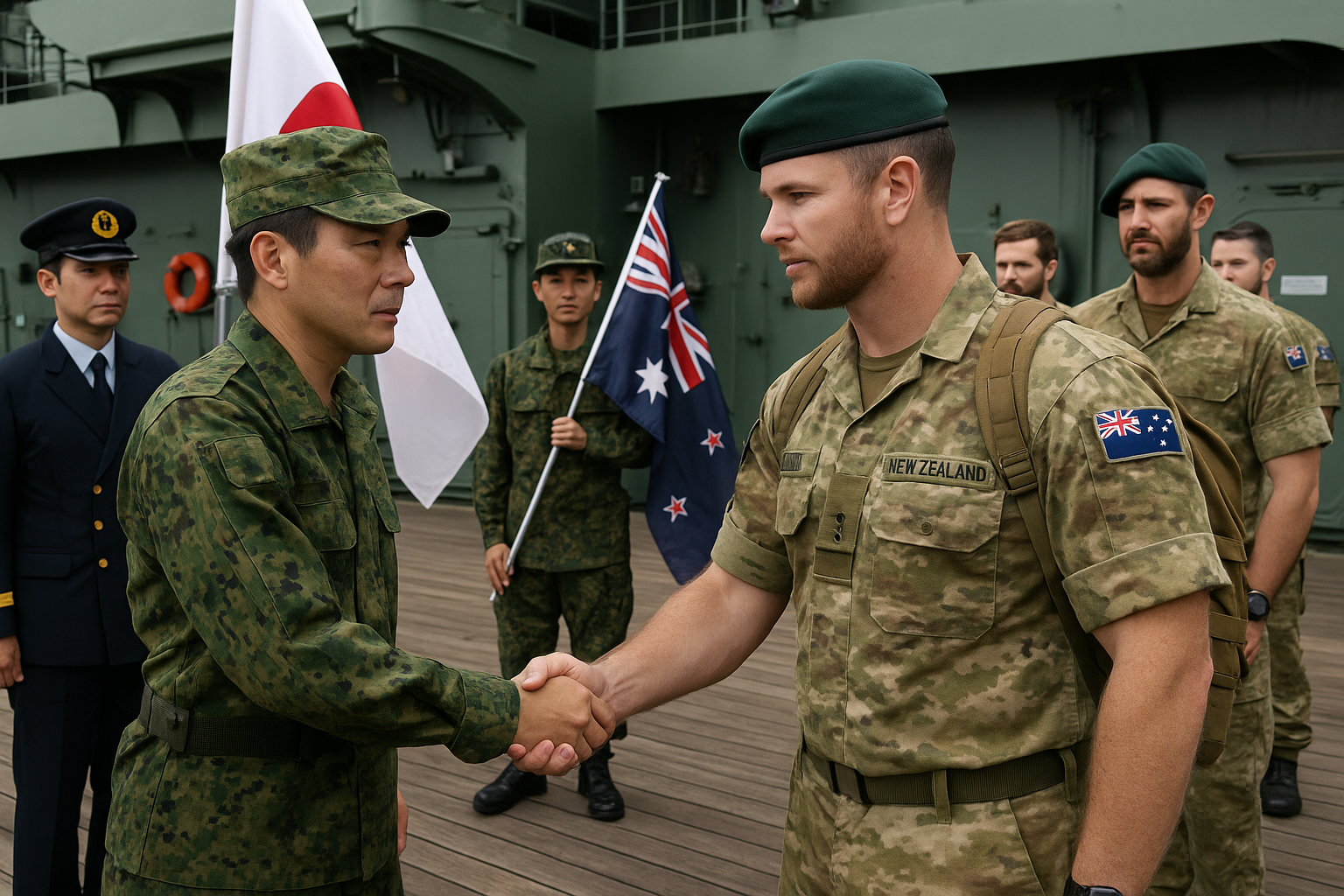New Zealand and Japan Advance Defence Ties with Logistics and Security Pacts
“Our militaries are already doing more together, and the agreement will provide practical support to help enable this cooperation,” Collins said.

- Country:
- New Zealand
In a significant step towards reinforcing regional security and military interoperability, New Zealand and Japan have announced the development of a landmark logistics agreement that will underpin and enhance ongoing defence collaboration between the two nations. This initiative, unveiled during the East Asia Summit Foreign Ministers’ Meeting in Kuala Lumpur, reflects the two countries’ deepening commitment to a rules-based international order and greater strategic cooperation.
Strengthening a Strategic Partnership
Foreign Minister Winston Peters emphasized Japan’s growing importance as a regional ally. “Japan is a crucial partner for New Zealand,” Peters stated after his bilateral meeting with Japanese Foreign Minister Iwaya Takeshi. “We are both committed to the international rules-based system, and to maintaining security and prosperity in our region.”
The upcoming Acquisition and Cross Servicing Agreement (ACSA) will define how both nations’ armed forces can provide reciprocal support during joint training, peacekeeping missions, and humanitarian operations.
Enabling Practical Military Cooperation
New Zealand’s Defence Minister Judith Collins outlined the operational value of the agreement. “Our militaries are already doing more together, and the agreement will provide practical support to help enable this cooperation,” Collins said.
“This is an important step as New Zealand pulls its weight on the world stage. It will ultimately strengthen our interoperability and ability to work closely with our partners.”
The logistics framework will cover a range of vital support services — from the provision of supplies and equipment to logistical services such as maintenance and transportation. It will also enable mutual access to fuel, food, and medical support in the field.
One notable example includes the potential use of the Royal New Zealand Navy’s replenishment vessel HMNZS Aotearoa to refuel Japanese ships at sea. Similarly, Japanese forces may support New Zealand troops with essential goods during joint humanitarian assistance or disaster relief efforts.
A Complementary Information Security Agreement
In parallel to the ACSA, both countries are finalizing an Information Security Agreement (ISA). This legal framework will allow for the secure exchange of classified defence and intelligence information, marking a significant evolution in trust and operational integration between New Zealand and Japan.
The ISA is expected to facilitate smoother coordination during joint exercises and in response to emergencies, especially in the Indo-Pacific region where geopolitical tensions continue to rise.
Regional and Global Implications
These agreements arrive at a time when New Zealand is visibly expanding its international defence footprint and aligning more closely with like-minded partners in the Asia-Pacific. Japan, under its newly revised defence strategy, is actively strengthening bilateral security ties across the region.
The deepening military relationship between the two countries complements broader multilateral efforts, including participation in Quad-aligned initiatives and United Nations peacekeeping operations.
As both nations face shared security challenges — from natural disasters to maritime security threats — the enhanced cooperation underscores a maturing strategic partnership, underpinned by shared democratic values and regional interests.










